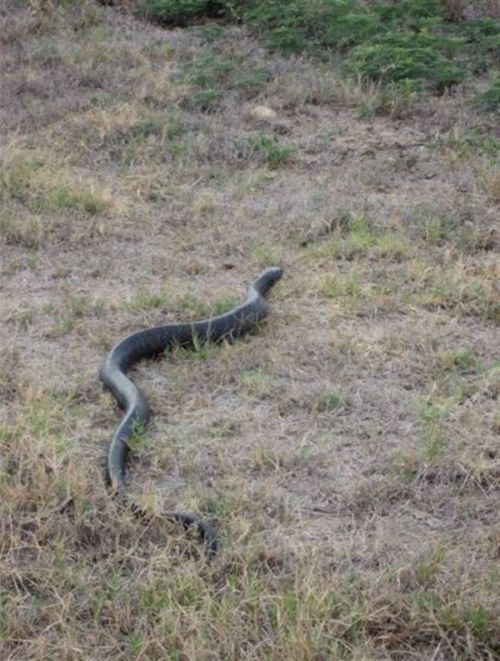|
|
Snake Ate Another Smaller Snake
|
Behavior
All snakes are strictly carnivorous, eating small animals including lizards, other snakes, small mammals, birds, eggs, fish, snails or insects. Because snakes cannot bite or tear their food to pieces, they must swallow prey whole. The body size of a snake has a major influence on its eating habits. Smaller snakes eat smaller prey. Juvenile pythons might start out feeding on lizards or mice and graduate to small deer or antelope as an adult, for example.
The snake's jaw is a complex structure. Contrary to the popular belief that snakes can dislocate their jaws, snakes have a very flexible lower jaw, the two halves of which are not rigidly attached, and numerous other joints in their skull, allowing them to open their mouths wide enough to swallow their prey whole, even if it is larger in diameter than the snake itself, as snakes do not chew. For example, the African egg-eating snake has flexible jaws adapted for eating eggs much larger than the diameter of its head.:81 This snake has no teeth, but does have bony protrusions on the inside edge of its spine, which it uses to break shells when it eats eggs.:81
While the majority of snakes eat a variety of prey animals, there is some specialization by some species. King cobras and the Australian bandy-bandy consume other snakes. Pareas iwesakii and other snail-eating colubrids of subfamily Pareatinae have more teeth on the right side of their mouths than on the left, as the shells of their prey usually spiral clockwise:184
|
|









